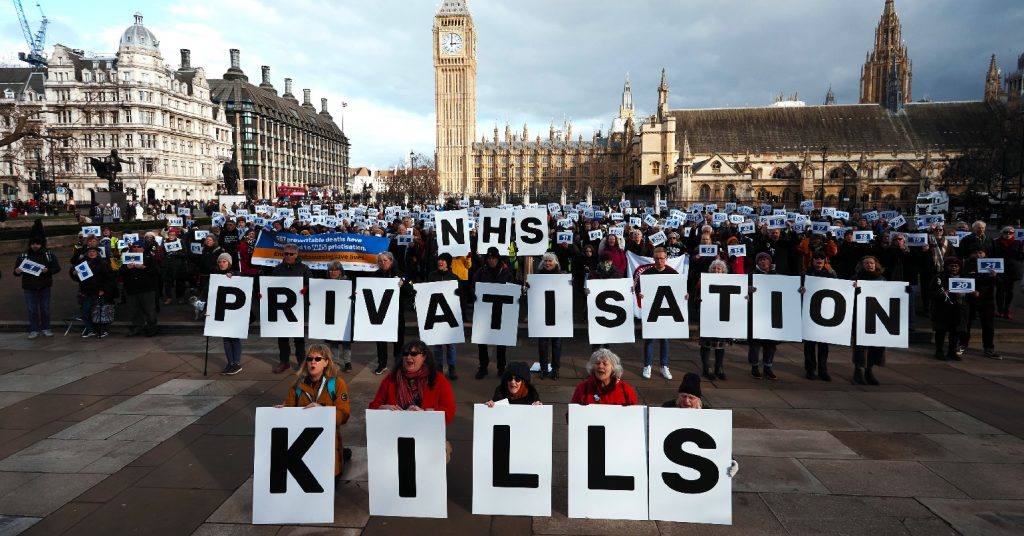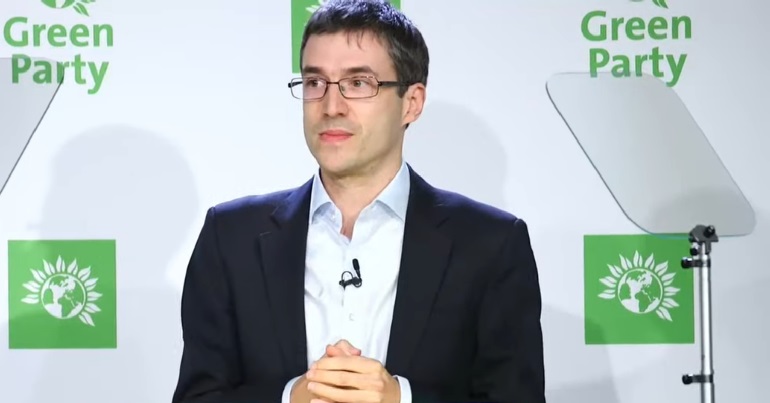Dust. Settled. Go Scotland: a 7 item to-do list
For two years up to September the country was in fever pitch with friends, colleagues, families and strangers debating and cajoling each other on every issue we have. It was all encompassing and it was fascinating – but ultimately it was leading up to answering a binary question.
After we got our answer on September 19th the pieces made their moves. Two party leaders resigned. A key leader of the No campaign, Gordon Brown, then announced his intention not to return to Westminster. And inside of two months the Smith Commission met, argued, and agreed limited new powers for the Scottish Parliament. It has been quite a storm.
Scotland remains in political ferment. But the dust is starting to settle.
Politics in Scotland is complicated again, but not everyone has yet come to terms with that change. Independence, the issue that changed everything, is still the number political issue on the street. But many people have jumped into the ferment for other reasons: to alleviate poverty, to strengthen their communities, to stop fracking, to start talking to one another, to stop austerity and to grow alternatives.
The two biggest game changers are now on their way to settling: we have a new First Minister and a new agreement on powers for the Scottish Parliament. Soon we’ll also know the Leader of Scottish Labour.
We know enough to get organised again. What can we do?
Many things are vital. Some of these things are especially vital right now. The following is a list of things Scotland needs to do right now.
1. Nationalise our railways
“The power will be devolved to the Scottish Government to allow public sector operators to bid for rail franchises funded and specified by Scottish Ministers.”, p.21, Smith Commission report.
Well? What are we waiting for?
Public support for renationalising the railways is historically high and considerable anger is mounting over the East Coast sell off, due this Spring. This is the perfect time to reclaim the railways.
The Green alternative is not just about reversing the past. Public transport in public hands has been working effectively since privatisation including the Glasgow subway and the Edinburgh buses. But we can go further. Public transport is a basic need for many people: so why not make it free?
Who to talk to?
- Action for Rail – Keep East Coast Public
- Bring Back British Rail
- We Own It
2. Champion the welfare state
Labour and the Conservatives are trying to out-do each other about who can make the biggest cuts. Among other pledges, Labour have promised to scrap welfare for the under 25s. Conservative plans will lead to “colossal” cuts, according to the IFS yesterday. The 2015 General Election will be the first chance we’ve had to vote for an alternative for the UK.
The contract for work capability assessments is to be auctioned off in early 2015 following ATOS’ early termination. Labour say they want to “reform Work Capability Assessments to help more disabled people into work“(1). But these assessments weren’t just mismanaged: they are plain wrong.
A small proportion of powers over welfare are to be devolved to Scotland. These will allow the SNP to block things like the bedroom tax, but their overall impact may not be big.
Welfare is our vital infrastructure for a functioning society, as Adam Ramsay puts it. We need the Scottish Government to know we’re watching how new powers will be used and we must join up with groups across the UK to defend the welfare we have.
We have positive stories to tell. Greens have campaigned successfully to stop workfare and the bedroom tax in Scotland. And we have a clear alternative to benefit cuts and means testing: a universal basic income. This is the right time to talk about it.
Who to talk to?
- False Economy (Union supported anti-cuts resource)
- Boycott workfare: list of local groups
- Black Triangle Campaign (human rights for human rights of disabled people)
- Benefit tales
- Save Legal Aid
3. Stop TTIP
A truly European-wide campaign has been born this year against two dangerous trade treaties which will codify new rights for US and Canadian corporations over UK markets. The NHS being exempted from TTIP is not enough – the treaty must be stopped. Nicola Sturgeon has signalled some concerns about TTIP. In 2015 it will either be signed or torn up. Scotland could lead the opposition.
Who to talk to?
- Global Justice Now (formerly the WDM) – Trade Justice and TTIP
4. Tax the rich
At a time of austerity the UK Government’s response has been to cut taxes for wealthy people and wealthy companies. In the first years of the Coalition UK Uncut did a brilliant job of reminding people what austerity was all about: we need to resurrect their energy and make redistributive taxation part of the debate in the 2015 General Election.
The Scottish Parliament is to receive new powers over income tax. Although, as Iain Macwhirter points out, there isn’t much money to be raised from changing these rates, it is crucial that the SNP rethinks its low tax approach. Corporation tax cuts, a key plank of the Independence White Paper and a continuing theme of Conservative Government, need to be clearly opposed.
Nicola Sturgeon has chosen to make land reform a key issue of her new leadership. We need to make tax part of the debate: aspirations to redistribute land would clearly be advanced with a land value tax. This is a solid green idea that also responds to another question raised by the Scottish Government: how to replace the council tax.
Who to talk to?
- Land reform, Andy Wightman.
- Tax, Richard Murphy.
5. Defend migrants
The London media have set the stage for the 2015 General Election and Nigel Farage will be their leading star. Immigrants are already getting the blame for most of society’s ills but never in our lifetime has a general election campaign had immigration as the central issue. The SNP will claim they are pro-immigration by rejecting Labour and Conservative policies: that is not good enough. We need a just and welcoming Scotland, to show that Scotland and the world would be better off if we opened our borders.
Who to talk to:
6. Stop fracking and unconventional gas
Scotland is facing an especially dirty wave of new mining. Unconventional gas drilling, including shale, coal bed methane (CBM), and underground coal gasification, using new techniques such as fracking are on their way. They have developed slower in Scotland having been met with caution from the Scottish Government but their time is coming: Ineos announced plans last month to bid for new drilling licences in central Scotland; there are new plans to get gas from lighting coal seems; and the enquiry on CBM in Airth will report in the Spring.
New powers are now due from the Smith Commission which said:
“the licensing of onshore oil and gas extraction underlying Scotland [and] responsibility for mineral access rights for underground onshore extraction of oil and gas in Scotland will be devolved to the Scottish Parliament.” p.21, Smith Commission report.
These powers could be used to stop extreme energy technologies but this will only happen if we get organised – now.
The Green alternative is clear: a green new deal with jobs from clean, locally-owned renewables and energy efficiency improvements to stop fuel poverty.
Who to talk to:
- Friends of the Earth Scotland – Fracking and Unconventional Gas Campaign
- Frack Off UK
7. Discuss, critique, plan, prepare and join in
There has never been a better time to be organised in Scotland. There are some suggestions about places to start in the paragraphs above. Here are some more:
- Start or get involved with a local campaign.
- Join a political party that stands against austerity, like the Scottish Greens.
- Put some money towards better media like Red Pepper Magazine and Common Weal.
- Join a trade union.
- Email your political representatives.
Many people were brought into the conversation around remaking Scotland in the context of the referendum. Today’s politics need to be different. A yes vote is not coming our way to answer all our problems. The new Scotland is so much more interesting than that.
We need to take the time to be critical of the SNP’s proposals for independence and build long term support for a more radical, coherent vision of change in this country – on currency, on energy, on tax, to name but a few examples.
Through radical action that’s needed now, and debating our vision for what’s next, we will become better organised than ever to build a just Scotland.
At the Radical Independence Conference in October 2013 Leslie Riddoch said Scotland was a socially democratic cat-in-the-bag, and it was time to open the bag. A lot has changed in these 13 months. Perhaps the cat could pop out for an adventure?
Extra!
It’s been pointed out that this is also a very good time to be getting active on housing in Scotland, with a consultation on Scottish Government reforms out and support from Labour for some private rent controls. There’s more info at the Living Rent Campaign.
References
(1) October 29, Kate Green MP, Labour’s Shadow Minister for Disabled People.





Leave a Reply